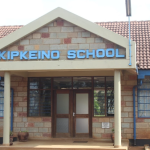The government has defended the Affordable Housing Act 2024, asserting that it was established to enable citizens to access decent housing. This comes in response to a legal challenge from 22 senators, led by Busia Senator Okiya Omtatah, who have labeled the Act, which imposes a 1.5 percent levy on incomes, as a “Ponzi scheme.”
Senior Counsel Prof. Githu Muigai, along with Kiragu Kimani and Mahat Somane, urged a three-judge bench to uphold the Act and dismiss the petitions. They argued that the levy was the result of careful negotiation and aimed at achieving a specific public purpose: raising funds to ensure all citizens have access to affordable housing.
The senators raised concerns about issues such as double taxation, public participation, judicial independence, and discrimination under the Affordable Housing Act. They argued that the housing levy constitutes double taxation, especially for individuals who have taken out mortgages before the Act’s enactment.
However, the state refuted this claim, stating that mortgages are credit facilities and should be regarded as debt. Githu asserted, “It is also not true that a majority of Kenyans are servicing mortgages as alleged by the petitioners.”
The government’s counsels maintained that the Act was designed to serve a public interest, emphasizing that the notion of double taxation is fundamentally flawed. They reiterated that the levy was intended to fund initiatives for decent housing access.
In contrast, the senators argued that the Act lacks a clear framework for how individuals in the informal sector would contribute to the levy, leading to potential discrimination. They highlighted that the Act does not adequately address the needs of those already servicing mortgages or those who own homes built to their preferences.
“Forcing people to get deducted to enable another person to get a house, while the contributor is not benefiting, is unconstitutional,” they contended.
The petitioners urged the court to consider how other levies, such as those on fuel and sugar, operate, pointing out that the housing levy does not provide a clear roadmap for compliance, particularly for informal sector workers.
In a rebuttal, Githu Muigai and his legal team argued that the senators failed to demonstrate any unfair discrimination resulting from the Affordable Housing Act. They emphasized that the levy applies not only to salaried employees but also to individuals with various sources of income.
Regarding public participation, the state pointed out that there was direct involvement from the public through memoranda and submissions made to the legislature. “There was also indirect participation through debates, amendments, and proposals initiated by members of the legislature,” they stated.
On March 19, President William Ruto signed the Affordable Housing Bill, 2024, into law, thereby reinstating the contentious housing levy deductions. This new legislation also includes workers in the informal sector, aligning with a previous High Court ruling that declared the earlier version of the levy unconstitutional.
Under the new law, Kenyans will now see a deduction of 1.5 percent from their gross monthly pay. The court is set to deliver its judgment on October 22.



